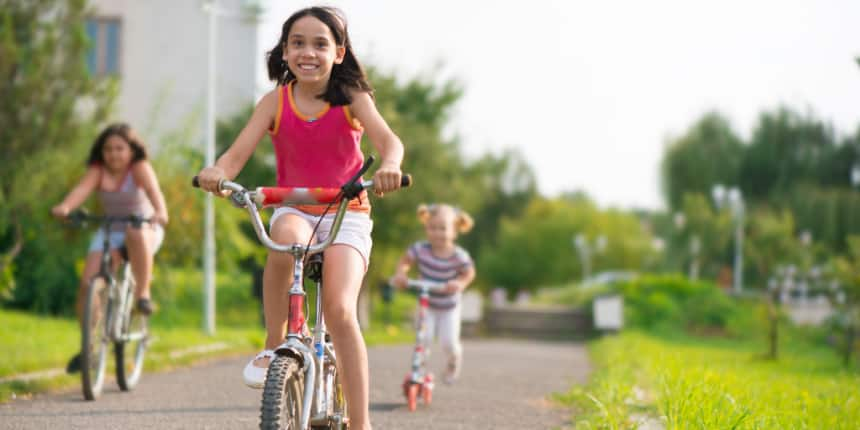Why Is Playtime Important - Benefits of Play for Children
Why Is Playtime Important
Playtime plays an important role in children's lives as it is a natural and pleasurable way to remain active, healthy, and happy. The playtime helps children grow into healthy adolescents. From infancy to adolescence, children require a variety of play experiences to maintain excellent physical and mental health. It also helps them develop life skills. Free play is when a child's play is based on their interests, creativity, and intuition, and they engage in play without parental supervision. Children's growth, health, and well-being all benefit from free play. To learn more about the importance of playtime, read this article. We have mentioned the benefits of playtime and how kids learn while having fun.
Why Is Playtime Important: Brain Development

Playtime fosters development in children's brains in a variety of ways, including improvement in the child's comprehension of the outside world and laying the foundation for future brain development. For example, when children play, they imagine stories, build things, run around in the park or play with friends. This forms new connections in their brain and improves their thinking, memory and problem-solving. The playtime also teaches children to control their emotions, play in a group setting, and be creative, keeping their brains engaged in a fun and enjoyable way.
Also Read | SMART Goals Examples For Students
Why Is Playtime Important: Builds Imagination & Creativity
Children use their imagination when playing. They invent imaginary games and characters or lose themselves in made-up settings. They do not fear being wrong or having to think in a certain way. They go all out and dream outside the box. This kind of playtime strengthens the part of their brain which is responsible for planning, self-expression and innovation.
Children build their confidence by acting out various solutions. They establish their own norms and learn to abide by them or modify them as necessary. These are practical abilities for navigating life and establishing connections with people. Often, while playing, children use one item for a different function. For instance, they may use a stick as a cooking tool or a bucket as a pot. This is called symbolic play. Playing with symbols is crucial to a child's healthy growth. It helps kids develop the abilities they'll need for problem-solving and future learning. Additionally, it enhances creativity, which helps people succeed in many aspects of their lives.
Also Read | How To Be Creative: 7 Ways To Unleash Your Creativity
Why Is Playtime Important: Builds Self-Confidence
Children may have rockstar-like feelings after taking on obstacles and excelling. To them, no accomplishment is too large or too small to be honoured. Taking a chance and ultimately succeeding in what they set out to achieve builds confidence, whether it's learning how to perform a handstand in the water or navigating the monkey bars at the playground. By learning to face physical difficulties, children may develop their imagination and learn dispute-resolution techniques to increase their confidence. They'll be certain that they have the capacity to rise to the challenge and meet it head-on, no matter what it may be.
Also Read | How To Build Confidence And Self-Esteem
Why Is Playtime Important: Emotional and Behavioural Benefits
Exercising, playing, going around, tendering, singing karaoke with friends, allow us to reconnect with the things in life that give us a sense of purpose. The only difference is that children require a lot more play. Playing frequently and regularly lessens irritation, tension, and worry. It also fosters happiness and self-confidence. Children learn how to navigate the environment via play in a way that they can comprehend and process. They investigate group dynamics, sharing, negotiating, dispute resolution, and speaking out for oneself.
Also Read | Positive Thinking For Students
Why Is Playtime Important: Greater Independence
Children frequently lack control or input into their everyday activities. They are instructed on what to do, when to do it, and where to go for a large portion of their days. They have the chance to establish the rules and exercise authority in the domain of play. Learning how to play with others and playing independently are both crucial life skills. Children benefit from having a greater feeling of freedom. Children who are at ease playing alone feel more capable of taking on other duties and finding their place in the group.
Your child may learn about the world via play while also discovering and pushing their own boundaries. They are doing something that makes them happy or amused at the same time. Their favourite make-believe character during role play or the fact that their mother does not like it when they shout inside the home are just a few of the things that children learn via play, among other things. Encourage playtime so that your kid may discover their talents and skills while engaging with others and their environment.
Also Read |
Applications for Admissions are open.
As per latest syllabus. Physics formulas, equations, & laws of class 11 & 12th chapters
JEE Main Important Chemistry formulas
Get nowAs per latest syllabus. Chemistry formulas, equations, & laws of class 11 & 12th chapters
JEE Main high scoring chapters and topics
Get nowAs per latest 2024 syllabus. Study 40% syllabus and score upto 100% marks in JEE
JEE Main Important Mathematics Formulas
Get nowAs per latest syllabus. Maths formulas, equations, & theorems of class 11 & 12th chapters
